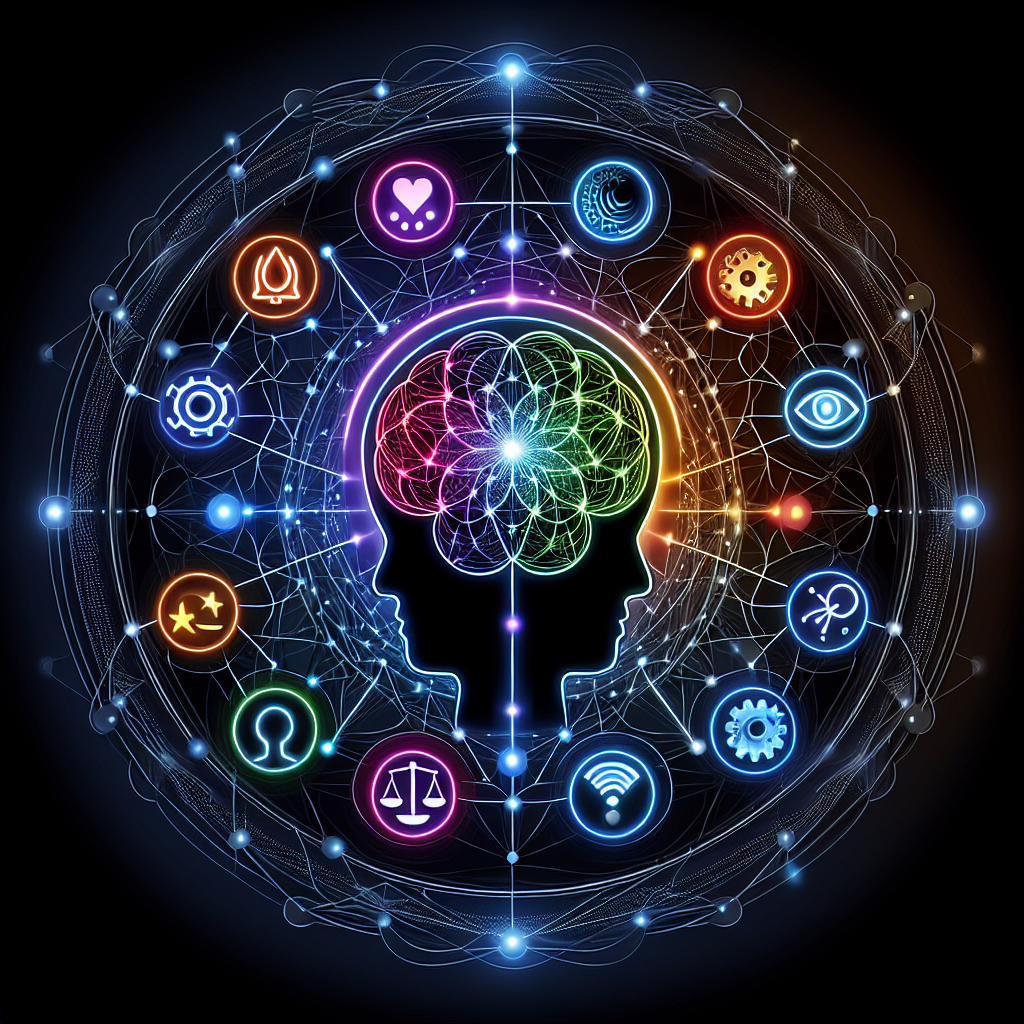In recent years, there has been a growing interest in using artificial intelligence (AI) to improve mental health and wellness. AI-driven solutions have the potential to revolutionize the way we approach mental health care, offering personalized and data-driven interventions that can help individuals manage their mental health more effectively. From chatbots and virtual therapists to predictive analytics and wearable devices, AI is being used in a variety of ways to support mental well-being.
One of the key advantages of using AI in mental health care is its ability to provide personalized and timely interventions. AI algorithms can analyze large amounts of data to identify patterns and trends in an individual’s behavior, allowing for more targeted and effective interventions. For example, AI-powered chatbots can provide real-time support and guidance to individuals experiencing mental health challenges, offering coping strategies, resources, and referrals to mental health professionals when needed.
AI can also help improve access to mental health care by bridging the gap between demand and supply. With the shortage of mental health professionals in many parts of the world, AI-driven solutions can help extend the reach of mental health care services to more people. Virtual therapy platforms, for example, can connect individuals with licensed therapists through video calls, making it easier for individuals to access mental health support from the comfort of their own homes.
In addition to providing personalized and accessible interventions, AI can also help improve the quality of mental health care by enabling more accurate diagnostics and treatment planning. AI algorithms can analyze a wide range of data, including electronic health records, genetic information, and behavioral data, to help mental health professionals make more informed decisions about diagnosis and treatment options. By harnessing the power of AI, mental health professionals can leverage data-driven insights to deliver more effective and tailored care to their patients.
Furthermore, AI can play a crucial role in early detection and prevention of mental health disorders. By analyzing data from wearable devices, social media platforms, and other sources, AI algorithms can detect early signs of mental health issues and alert individuals or their caregivers to seek help. This proactive approach to mental health care can help prevent more severe mental health problems from developing, leading to better outcomes for individuals and reducing the burden on the healthcare system.
Despite the potential benefits of AI-driven solutions for mental health and wellness, there are also challenges and concerns that need to be addressed. One of the main concerns is the ethical implications of using AI in mental health care, including issues related to privacy, data security, and algorithmic bias. It is crucial for developers and mental health professionals to ensure that AI systems are designed and implemented in a way that prioritizes the well-being and autonomy of individuals.
Another challenge is the need for robust validation and regulation of AI-driven mental health solutions. As AI technologies continue to evolve rapidly, it is important to establish standards and guidelines for the development, deployment, and evaluation of AI systems in mental health care. This includes conducting rigorous testing and validation of AI algorithms to ensure their accuracy and reliability, as well as monitoring their impact on patient outcomes and satisfaction.
Despite these challenges, the potential of AI-driven solutions for improving mental health and wellness is undeniable. By leveraging the power of AI, we can transform the way we approach mental health care, offering more personalized, accessible, and effective interventions to individuals in need. As the field of AI continues to advance, we can expect to see even more innovative and impactful solutions that will help us better understand, prevent, and treat mental health disorders.
FAQs:
Q: How can AI help improve access to mental health care?
A: AI-driven solutions can help extend the reach of mental health care services by providing virtual therapy platforms, chatbots, and other digital interventions that can connect individuals with mental health professionals remotely. This can help overcome barriers such as stigma, cost, and geographical distance, making it easier for individuals to access the support they need.
Q: Are AI-driven mental health solutions effective?
A: Research suggests that AI-driven solutions can be effective in improving mental health outcomes, including reducing symptoms of anxiety, depression, and other mental health disorders. However, more studies are needed to better understand the long-term impact and effectiveness of AI interventions in mental health care.
Q: What are some ethical concerns related to using AI in mental health care?
A: Ethical concerns related to AI in mental health care include issues such as privacy, data security, and algorithmic bias. It is important for developers and mental health professionals to address these concerns by ensuring that AI systems are designed and implemented in a way that prioritizes the well-being and autonomy of individuals.
Q: How can individuals benefit from using AI-driven mental health solutions?
A: Individuals can benefit from using AI-driven mental health solutions by gaining access to personalized, timely, and data-driven interventions that can help them manage their mental health more effectively. AI can provide support, guidance, and resources to individuals experiencing mental health challenges, as well as help prevent more severe mental health issues from developing.

